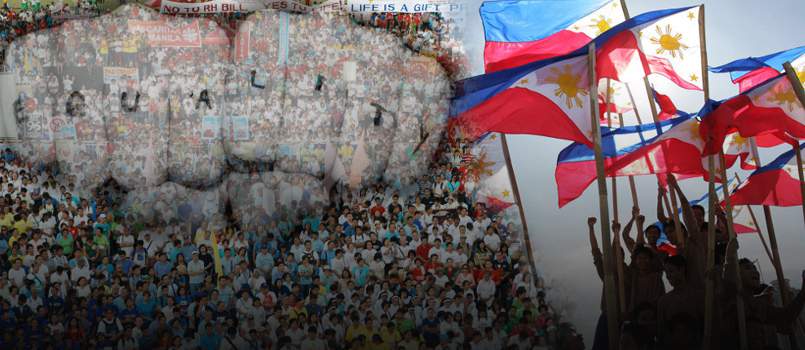755 total views
Globalization is a relatively new concept that has taken the world by storm. It has far-reaching implications not only in the area of business or economy but in the political, cultural and social spheres as well. It is a term generally used to describe the ever growing interdependence of people and countries or the worldwide integration of peoples, their economies, their politics and their culture.
The process of interaction and integration between peoples and countries is not actually new to humanity. Trade across tribes and nations has taken place from pre-historic times and was an incipient form of globalization. Colonialism followed it, allowing for more contact across the globe on terms dictated by colonial masters, where the subjects became sources of raw materials and cheap labor for the former’s needs (Ledivinia V. Cariño, The Concept of Governance, p.72). The independence movements of the 19th and 20th centuries won political sovereignty for the colonies but as new states, their growth still depended on the trade and exchange policies of their erstwhile masters and other economically developed countries of the West. Concessions have to be made to Third World or less developed nations and these gave rise to mutual defense organizations, treaties, common markets, and other political and economic agreements that provided room for the new states to grow and develop and to seek new partners outside of the old colonial trading network (Cariño, 73).
In recent years this process of interaction and integration has witnessed an intensification and acceleration that is unprecedented in human history. Thanks to advances in science and technology and the founding of world leaders of the United Nations Organization and its various agencies, people across countries felt all the more interconnected to each other. A process that breaks barriers between peoples and connects them more intensely is surely a blessing to humanity and must be applauded and supported. But this is not the full story of globalization.
Years after the whirlwind of globalization gathered momentum, the economies of most of the rich industrialized nations have grown to unexpected proportions. They produced more billionaires and on account of trade and investment liberalization, which has opened up local markets, their big multinational corporations have made huge profits and have become major power brokers in the world community. But for the overwhelmingly poor and developing countries, the story is totally different. After adopting the prescriptions of agents of globalization, they’re hopes faded in the doldrums. Soon they realized that globalization is a “one-sided” affair. It greatly benefits the already rich, but is extremely disadvantageous to the poor. They saw their local industries being crushed by a deluge of cheaper goods from abroad; their citizens are experiencing widespread unemployment; their social infrastructure is collapsing; “brain drain” is on the rise as their worsening economy coupled with the booming economies of rich industrialized nations forced their qualified professional and experts to leave their homes in search of greener pastures from the latter countries.
Along with these unstable economic realities, the poor developing countries are also undergoing major social and cultural upheaval brought about by the incursion of foreign cultures, values and lifestyles that may soon result in a loss of identity. American and other foreign films are easily available and are even greater in number than local films. Fast food chains like McDonalds, KFC and others can easily be found. The same goes with clothing, music, household needs, etc. On the whole, traditional societies are losing their cultural identity, peculiar values and ethos. They are also losing their corporate identity and communal cohesion to the so called globalization of materialism and consumerism. In short, there is heightened social instability and political turmoil. In the Philippines, we may one day see the “igorots” and “ibanags” shunning their traditional clothing in favor of Lacoste or Ralp Lauren brands.
Thus, while globalization and the liberalization of trade and investment have exponentially benefitted the rich nations, they appear to have brought poverty, unemployment, the destruction of infrastructure and social dislocation to poor developing nations (George Ehusani, Towards the Globalization of Human Solidarity: The Challenge of Social Responsibility, 2006). We continue to live in a world full of flagrant inequalities, and despite the production and the wealth, the latter is increasingly concentrated in fewer hands. Actually, a world is being created where the greediness of a few is leaving the majority on the margin of history.
We could not probably reverse this integration called globalization. No one, I think, can afford to remain in primitive isolation in a world continuously made smaller by knowledge and technology. The consequences of transforming the world into one enormous market have to be faced, and for this a new world has to be built, a world in which there is room for all the worlds. Hence, Globalization has to be moderated through some deliberate policy choices by stakeholders. Governments should re-acquire its police powers which are generally weakened under this scheme. There must me restraint on how market, rather than people, determines how the world’s resources will be used and distributed. The introduction of certain ethical norms and values, – of justice, fair play, mutual respect and respect for human dignity must be done. I propose a conceptual framework on how ethical values may be important in the scheme of things under globalization by taking on the teaching of the Catholic Church on solidarity.
Solidarity makes it necessary to put oneself in another’s place in order to discover his/her needs and try to satisfy them according to the possibilities of each situation. It encourages giving the greatest possible service to each interdependent group: making efforts to maintain jobs, making investments to create new jobs; improving the quality of service to clients and users; helping the local community; improving the environment; contributing to social and educational initiatives, etc. The practice of solidarity needs to respect the initiative, creativity and sense of responsibility of others without absorbing or depriving them of what they are capable of doing. Solidarity is achieved by seeing to it that all human beings share in the available goods as a whole. These goods have to be divided up and shared without excluding anyone in the distribution, without some hoarding them at the cost of depriving others, and without introducing discriminatory measures in the distribution. Human sharing implies that the goods are scarce with respect to the needs to be satisfied. The fair way of sharing scarce goods is governed by the law of solidarity: the goods are “of” all and “for” all. In turn, solidarity culminates in fair human sharing.
Globalization has its own inherent goodness, but some unintended negative consequences emanating from it are too glaring and too serious to be ignored. If its goal is to find markets for the goods of world communities, then all nations must adhere to a sense of justice, equality and fairness. Globalization should never be about beneficiaries and victims, winners and losers or conquerors and conquered! It shouldn’t be about profits and markets. It should rather be about reaching out to other nations and people to help them rise from their misery. Oliva Blanchett is right after all to move for humanization of globalization. And this, I think, is made possible through global SOLIDARITY!





















